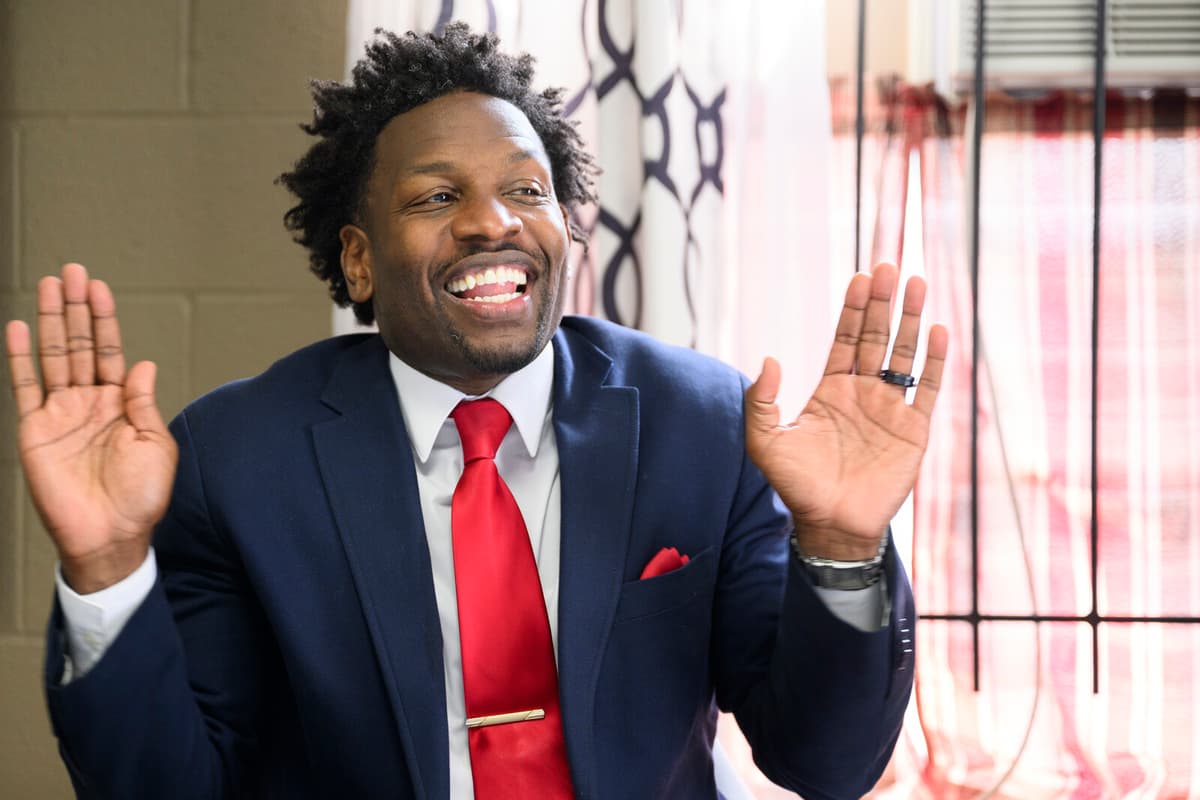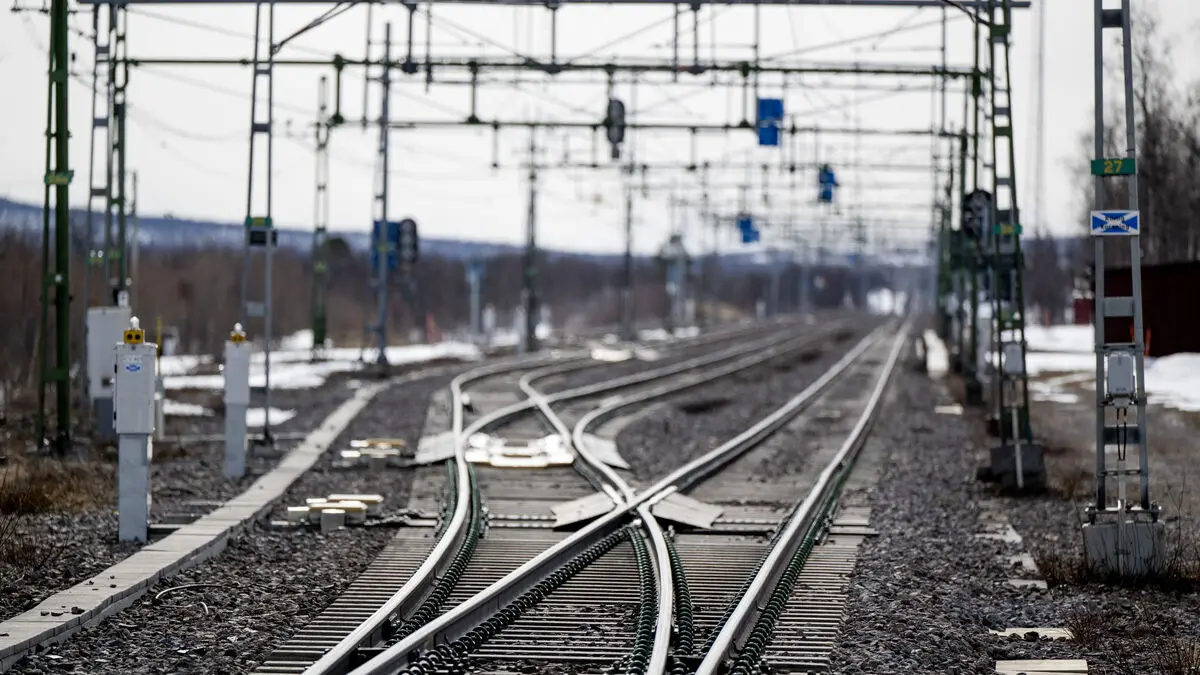Pastor Sewell receives visitors in his ornate office behind the altar at 180 Church between two services. It's only been a few months since he preached at the Republican convention, but he emphasizes that he formally does not support any presidential candidate. In the USA, it is forbidden for religious communities to support political candidates, and everyone is welcome to his church.
I don't really care who is president. Jesus is the one leading us, he says.
90 percent of the residents here are Democrats and that's okay. But I've always been a Republican. I'm against abortion and believe in traditional marriage.
The Coolest Guy?
Sewell says that most people in the church's neighborhood are like him: socially conservative and worried about the economy – essentially Republicans in his words. But, he claims, blacks often vote based on how their family and friends vote.
Most have a parent or grandmother who got them to promise to vote Democratic. Some don't even know why they do it.
The fact that Democratic presidents have historically been at the forefront of the civil rights movement or that many blacks distance themselves from Republican Donald Trump because he has expressed himself in a racist manner is dismissed by Sewell as "identity politics".
It's a lie. He (Trump) was the coolest guy before he became a politician, everyone loved him. He gave money to (black politicians and activists) Jesse Jackson and Al Sharpton, and was friends with Oprah Winfrey, he argues.
If Trump came to our church, the Democrats would be worried. If they lose just 25 percent of the black vote, they won't win any elections.
In the "Triangle of Death"
On the rough streets around 180 Church, warehouses and residential buildings are crumbling. Pastor Sewell emphasizes that Detroit and its surroundings are tough and disadvantaged. In fact, it's a kind of "triangle of death".
People here are busy surviving: taking care of their children, keeping their homes and jobs, affording food and gas. How are they supposed to have time to follow the news? Politics is for the privileged.
Against this background, he and activist Ramon Jackson have launched the educational project Souls to the Polls. It aims to educate Detroit's blacks about the US electoral process. But they're not trying to influence voters, they stress.
When knowledge and facts are presented, they'll know how to vote, says Jackson, who has joined the office.
Detroit has always been Democratic, but it hasn't helped us. I've lived here for 46 years, and we've lost hundreds of thousands of people due to crime, evictions, and economic hardship.
What do you think of Democrat Kamala Harris?
She's had her chance. She's been in the White House for three and a half years.
Rhetoric Decisive
The discussion in the church reflects the question being debated in US media and likely behind closed doors at presidential campaign headquarters: Do the country's minorities – blacks, Hispanics, and Americans of Asian descent – still predominantly support the Democrats? And if so, why?
As many as 83 percent of registered black voters see themselves as Democrats, according to a recent survey from Pew Research. But another study from Gallup shows that the Democrats' lead among both blacks and Hispanics has decreased by around 20 percentage points in recent years, votes that can be decisive in a swing state like Michigan. Republican strategists have for years emphasized that their party should be attractive to these minority groups, who are often conservative and strongly religious.
Teacher and Democrat Ken Snapp, who is running for Detroit's school board this year, says there is some truth to the argument.
Some values match. But when Republicans spread racism and hateful rhetoric and ban books, we blacks go back to the Democrats, he says.
Politics is about feelings. Racism was there before Trump, but it got worse during his time.
"Know What They're Doing"
In Oak Grove, Detroit, where many blacks live, it's clear that Kamala Harris can't count on support just because she's a woman or identifies as black. Voters TT meets raise the abortion issue, education, and economic equality as decisive for how they plan to vote in the fall.
Economist April Anderson, who runs the bakery Good Cakes and Bakes, which Harris visited in 2020, is one of them. In previous elections, she has voted both Republican and Democratic, but this year, she has decided on the vice president.
It's about politics, primarily the conditions for us entrepreneurs and the Gaza War. That she's a black woman guarantees nothing, but I can feel that she, as such, understands my perspective a little better, says Anderson, folding her apron.
The female perspective is even more important for pensioner Terrilyne Bradley-Betth, who previously worked at the tax authority and in the automotive industry. Over the past few weeks, she has been knocking on doors almost daily as a volunteer for the Harris campaign.
Women know what they're doing. It's high time to get someone in a decision-making position, she says curtly.
Bradley-Betth mentions abortion rights and immigration ("everyone is an immigrant here") as particularly important and tells how she knocks three times on each door. If the door opens, she emphasizes the importance of going to vote, especially here in Michigan, and asks if the person has made up their mind.
Most young people are enthusiastic. But I'm surprised that a large proportion of older people say they're unsure or like Donald Trump. Many say it's because he sent out covid checks.
Detroit, the motor city, has 637,000 inhabitants. A full 77 percent of them are black, 10 percent white, and around 4 percent Hispanic.
Detroit is also the largest city in the 15-electoral-vote-heavy Michigan, which is one of seven so-called swing states in the USA. In swing states, the balance between Republican and Democratic majorities is decided, and it's where the presidential election is realistically decided.
In 2016, Republican Donald Trump won over Democrat Hillary Clinton here with just 10,700 votes. In 2020, Democrat Joe Biden defeated Trump with 154,000 votes. The close margin makes every vote count.
Michigan has a total of 10.1 million inhabitants, of which 1.4 million are black. During the spring, Trump had a tailwind in the state and led in opinion polls. After Joe Biden's withdrawal last summer, support for the Democratic presidential candidate, Vice President Kamala Harris, has increased. She now leads over Trump in the state with an average of 1.2 percentage points.
Sources: AP, US Census, Datausa, and Real Clear Politics






